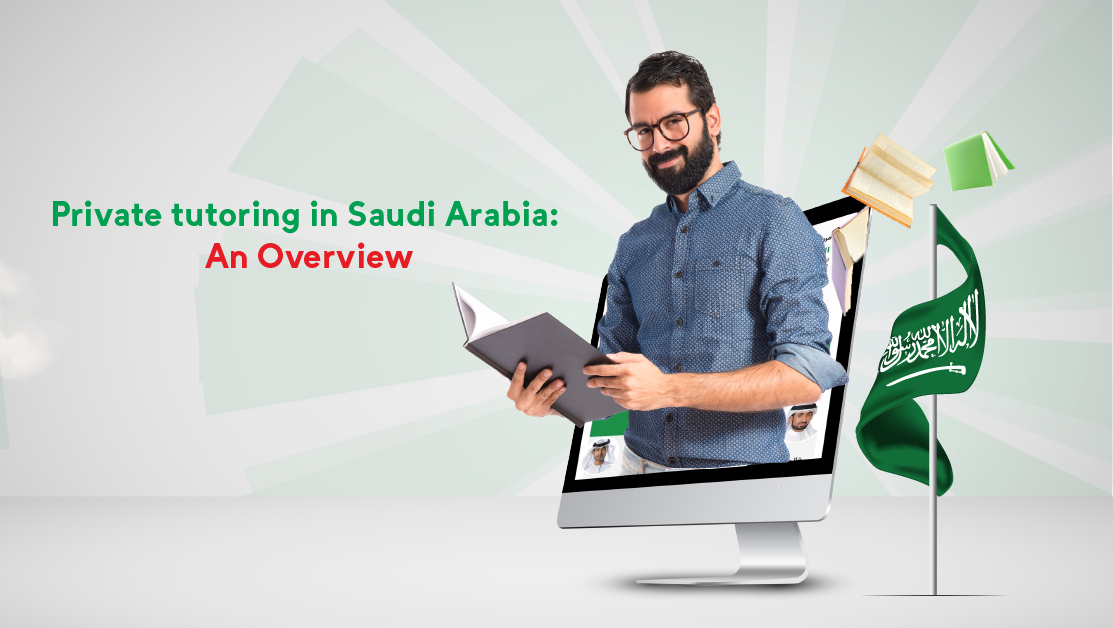
Private tutoring in Saudi Arabia is a supplemental education service that involves one-on-one or small group instruction by qualified tutors to help students improve their academic performance and achieve specific goals. It has gained popularity due to enhanced academic outcomes and increased competition for college and university admissions. Private tutoring in Saudi Arabia is presented by qualified tutors, personalized learning, flexibility, exam preparation, and online options. Costs vary based on qualifications, subject, grade level, and frequency. Cultural factors influence private tutoring’s popularity in Saudi Arabia. Choose a tutor with a strong reputation, track record, and positive testimonials. Maintain open communication with school and teachers, focusing on holistic development, learning, and academic growth.
Is private tutoring legal?
Private tutoring is generally permitted everywhere, including Saudi Arabia. However, laws and rules governing private tutoring may differ from one area or nation to another. It’s crucial to be aware of any special laws or regulations governing private tutoring in the location where it is provided.
Private tutoring is widely used and tolerated in Saudi Arabia. For their kids’ additional educational support and to help them do better in school and comprehend things better, many families turn to private tutoring.
Despite the fact that it is legal, private tutoring may be subject to several restrictions:
ü Licensing and registration: To legally provide private tutoring services, several nations or areas may need tutors or tutoring centers to get licenses or register with educational authorities.
ü Respect for educational policies: Private tutors must make sure that their tutoring methods adhere to the educational guidelines and curricula specified by the regional educational authority.
ü Working with qualified tutors: Parents should think about picking tutors who are qualified, accredited, and who have the appropriate subject-matter expertise as well as teaching experience.
ü Transparency: It’s critical that parents and tutors keep the tutoring arrangements, costs, and expectations open and transparent.
ü Respecting school policies means that private instruction should not replace the regular classroom experience.
Tutors should adhere to ethical principles, steer clear of conflicts of interest, and put the academic development of the student first.
Is private tutoring worth it?
The value of private tutoring is dependent on a number of elements, such as the student’s unique needs and circumstances, the tutoring’s caliber, the subject being covered, and the precise objectives the student wants to pursue. The following factors can help you decide whether private tutoring is worthwhile:
ü Individualized instruction: Private tutoring provides individualized instruction catered to each student’s particular needs and learning style. This specialized focus can be quite helpful, particularly for those who have academic difficulties or who want further assistance to succeed.
ü Learners can concentrate on certain areas of difficulty or interest with the help of a private tutor. Tutors can help students improve their knowledge of the material by reinforcing concepts, answering questions, and giving them more practice.
ü Preparing for an exam: When preparing for standardized tests or significant exams, private tutoring can be especially helpful. In order to improve the student’s performance, tutors might offer customized exam preparation techniques, practice materials, and advice.
ü Confidence and motivation: Working with a knowledgeable and encouraging tutor can increase a student’s confidence and motivation, improving academic achievement and cultivating a more favorable outlook on learning.
ü Catching up or moving up: If a student has fallen behind in a particular subject, private tutoring can be very helpful in getting them caught up. If they are able to, they can also move up in the curriculum.
ü Time management and scheduling flexibility are two benefits of private tutoring, which let students fit tutoring sessions around their other responsibilities. It is effective for targeted learning since tutors can concentrate on particular topics in a constrained amount of time.
ü Subject complexity: For certain pupils, some courses, such as advanced math or the sciences, can be exceptionally difficult. To tackle these challenging subjects, private tutoring can offer knowledgeable direction.
ü Support for special needs: Because private tutoring can be tailored to each student’s individual needs, it can be especially beneficial for individuals with learning impairments or other special needs.
Private tutoring may not be necessary for every student, depending on factors like cost, school resources, motivation, and tutor quality. Choosing an experienced, qualified tutor is crucial for effective private tutoring. Parents and students should assess their needs, academic objectives, and budgetary constraints before investing in private tutoring. Consult with teachers and experts to determine if it’s a good fit for their educational journey.
How much should a private tutor charge?
The cost of a private tutor’s services can vary widely depending on a number of variables, such as the tutor’s credentials, experience, topic knowledge, location, level of education, and demand for their services. The following factors may affect how much a private tutor will charge:
ü Experience and qualifications: Tutors with more experience and advanced degrees or teaching certificates often charge more. It’s possible that more experienced tutors with a successful track record will charge more for their services.
ü Subject knowledge: The cost of a teacher may vary depending on the difficulty and popularity of a particular subject. For instance, due to their expertise, tutors who focus on difficult math or science courses may charge extra.
ü Grade level: Elementary school tutors may charge less than those who assist students in higher grade levels or college-level subjects.
ü Location: Tutors in urban or high-demand areas could bill more than those in sparsely populated or highly competitive places.
ü Type of tutoring: Due to the individualized attention offered, private one-on-one tutoring sessions often command greater costs than group tutoring sessions.
ü Length of session: Prices for longer tutoring sessions may be higher than prices for shorter sessions.
ü Additional services: Tutors who provide extra services like test preparation, study guides, or exam preparation may charge more for these extra advantages.
ü Demand and availability: High-demand tutors may charge more to reflect their scarcity, while tutors with restricted availability may charge less.
Open communication is crucial for tutoring requirements, expectations, and pricing structures. Private tutors typically charge between $20 and $100 per hour, depending on factors like local economic situation and market. Balancing expense, tutor experience, and potential academic benefits is essential when hiring a private tutor.
Does private tutoring help?
Private tutoring has several advantages and can support students in different ways. Here are a few ways that private instruction might offer beneficial support and assistance:
ü Catching up and advancement: For kids who are having trouble keeping up with their peers or are falling behind in some courses, private tutoring can be especially beneficial. Tutors can assist in filling in knowledge gaps and raising the student’s reading level. However, advanced pupils might use tutoring to pursue harder ideas outside of the standard curriculum.
ü Positive learning environment: Compared to a classroom setting, private tutoring offers a less scary and more cozy learning environment. Asking questions, getting clarification, and actively participating in the learning process could be easier for students.
ü Learning styles: In a regular classroom, teachers frequently have to accommodate a varied range of pupils with various learning preferences. Through private instruction, tutors can modify their pedagogical approaches to better match their students’ preferred learning styles.
ü Confidence in weak areas: Due to a lack of confidence or previous bad experiences, students may struggle in particular courses. By concentrating on the student’s weak areas, providing constructive criticism, and recognizing academic success, a tutor can help the student gain confidence.
ü Focus on specific goals: Private tutoring can deliver specialized training in line with the student’s goals, whether the goal is to enhance grades, get ready for a specific exam, or perfect a particular skill.
ü Academic support during transitions: Private tutoring can be very helpful when a student is starting a new school or a grade level that is more difficult. Tutors can help with the adjustment by offering encouragement and direction.
ü Encouragement of independent learning: Tutors attempt to do more than just meet students’ immediate academic needs.
It’s worth saying that, Elmadrasah.com, which is recognized as one of the top educational platforms which is considered with the tutoring services, was developed to aid everyone who wants to learn a languages as well as parents who struggle to keep up with their children as they study. It also offers customer care that is available 24/7 to provide the student and his guardian with the support they require, helping EmSAT students pass exams and become a part of their success stories.
In conclusion, private tutoring plays a significant and widespread role in Saudi Arabia’s educational landscape. It is a popular and accepted practice aimed at enhancing students’ academic performance, providing personalized instruction, and addressing specific learning needs.















